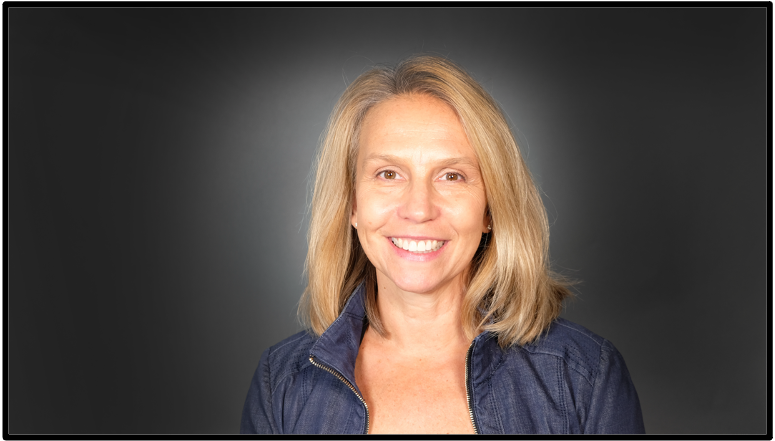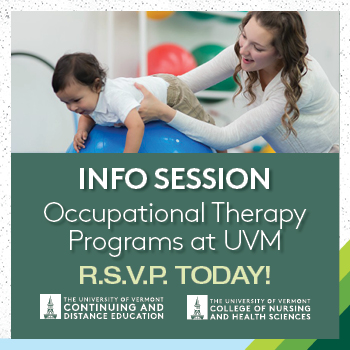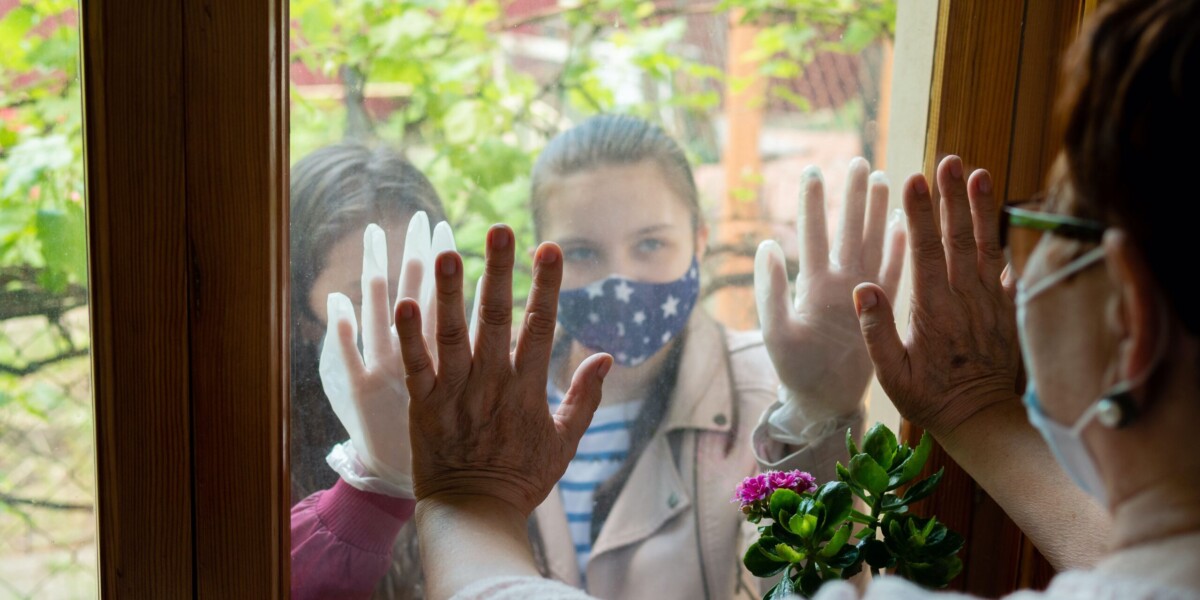A toddler struggling with fine motor skills proudly threads beads onto a string.
After a stroke and trouble with movement, a pianist joyfully plays their favorite piece again.
A bicyclist kept from riding due to pain and emotional trauma from a car crash feels ready to pedal again.
Imagine witnessing these transformative events and being the person who helped to make them possible.
Occupational therapists get to experience life-changing moments like these regularly. The purpose of occupational therapy (OT) is to help people regain or learn to do the activities of daily life.
“In OT, our slogan is living life to its fullest, and that supports what OT is really all about. How can we help people live life to its fullest?” said Catherine Armani-Munn, occupational therapist.
Career Changers Look to Occupational Therapy
Occupational therapy can be a career change that checks a lot of boxes for people who are compassionate and enjoy helping others transform their lives. It’s becoming even more appealing as people re-evaluate how they want to use their time post-pandemic. Many are feeling a strong desire to do more purpose-driven work to live life to the fullest themselves.
Now is the time to become an occupational therapist. According to the U.S. Bureau of Labor Statistics, “Employment of occupational therapists is projected to grow 16 percent from 2019 to 2029, much faster than the average for all occupations.”
UVM is proud to be at the forefront of this movement with the first Occupational Therapy Doctorate (OTD) degree program in the State of Vermont, launching in the fall of 2022. The entry-level clinical doctorate in Occupational Therapy (OT) will prepare students to become OT practitioners and will start accepting applications in the fall of 2021.
Students interested in an OT doctorate without a medical background and/or the required undergraduate science courses can catch up and complete the courses they need for the doctorate program in 12 to 24 months through UVM’s Occupational Therapy Pre-OT track in the post-Baccalaureate Premedical Program. A linkage agreement with the College of Nursing and Health Sciences guarantees an interview to all pre-OTD students who meet the requirements.

“You don’t have to have a biology degree or be a science person to enroll in the Pre-OT track. Our profession allows for that flexibility,” said Program Director Victoria Priganc, Ph.D., OTR, CHT, CLT. “You just need a bachelor’s degree that covers the general education requirements. People tend to go into the OT field because they have a creative side and knack for problem-solving.”
What an Occupational Therapist Does
Creativity and curiosity are critical characteristics of occupational therapists. Occupational therapists work with their patients to understand where their challenges are rooted so they can achieve a specific goal and function in the way they would like to.
“Occupational therapists ask themselves ‘what is the barrier and how can we work with this barrier?’” Priganc said. “People, no matter what their level of ability, can be successful members of society and can function if we give them the tools and help them to adapt the right way.”
Priganc says it’s common for occupational therapists to go into pediatric settings, hospital settings, and skilled nursing facilities.
“Aging in place and helping people stay where they want to stay is also really huge in our field,” Priganc said. “We also go into other areas like mental health, hand rehabilitation, and home health.”
The Path to Becoming an Occupational Therapist

Today, a master’s or a doctorate is required to become an occupational therapist by the American Occupational Therapy Association. In an upcoming occupational therapy informational webinar hosted by UVM on August 4, Priganc and her team will discuss the merits of both options and how prospective students can decide what is right for them.
The entry-level OTD program at UVM is unique because it was created in partnership with community clinicians and is rooted in experiential learning.
“What excites me the most about the program here at the University of Vermont is the link that we are creating between basic science, experiential learning, and community-based learning,” said Priganc. “We will have our students out in the community for a significant portion of their coursework so that they’re not sitting in the traditional classroom, but they’re really out doing.”
Following completion of the degree, students will be eligible to sit for the National Board for Certification in Occupational Therapy (NBCOT) exam.
If you’re ready for a more fulfilling career, consider becoming an occupational therapist.
“I always say occupational therapy is a consultant. I’m not here to tell you what to do and how to do it, I’m here to listen to you, find out what your goals are, and to help you develop a plan,” said occupational therapist Aimil Parmele.




